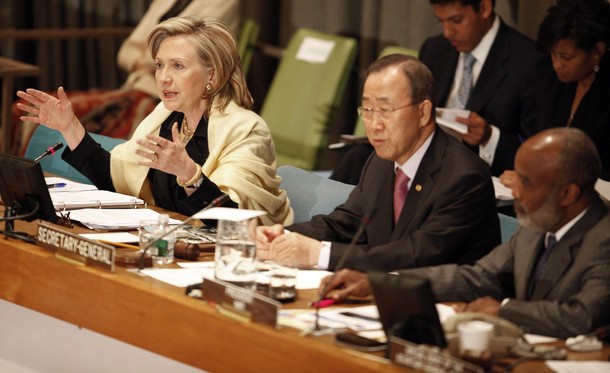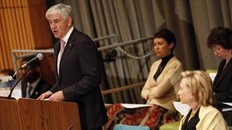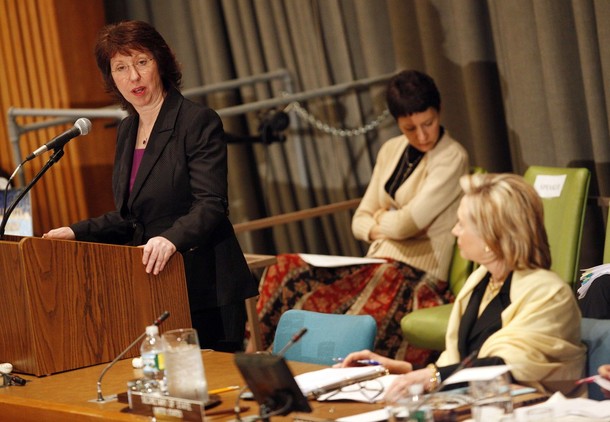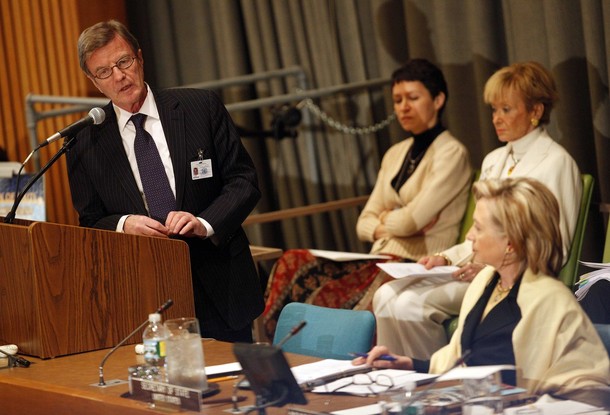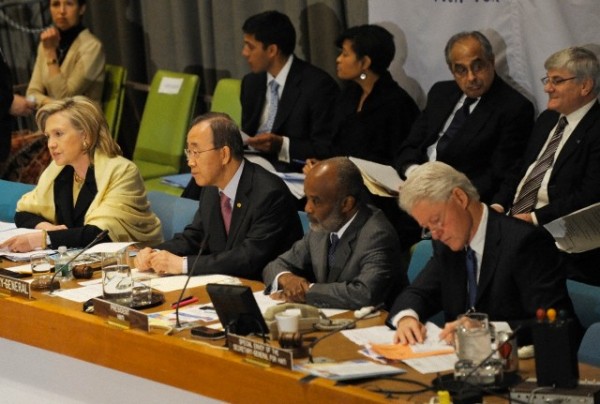I lived and worked in Haiti for a good portion of my adult life when I
was a very sure-of-myself thirty-something who knew my fellow Americans
very well. I knew they would
never elect a celebrity to the Oval Office. That was 1980 ... and they did.
When
I lived there, Haiti did not have elections. They had a President for
Life. I was reminded of this on my way to and from work twice a day by
the huge billboard on the Champs-de-Mars across from the National
Palace. Nobody in Haiti voted for him. His dying father made him
president while he was still in his teens. Nobody in Haiti ever called
him "Baby Doc" -
ever! Sometimes American tourists
would use the term, and we would gently whisper corrections. You never
knew who might be listening. "But I have freedom of speech," they
insisted. Nope, not there you didn't.
When I sensed trouble coming
in the early 80s, I left. In 1986 Jean-Claude Duvalier was overthrown
and also left. Haiti embarked on the long, rocky road to democracy. It
was and is very bumpy ride - sort of like a ride on a Haitian tap-tap.

A
president was elected, then overthrown by the army and exiled, and then returned again to fulfill his elected term. N.B. We did not
install Aristede, and he was not our "puppet." President Clinton 42 merely restored the elected Haitian president to his rightful post. Just saying because I have heard that allegation.
On
January 12, 2010 a catastrophic earthquake killed more than 200,000
people. Colleagues told me, when they heard early estimates of one-tenth
that many, that they did not think that toll was possible and must have
been an exaggeration. They did not know Haiti, and they did not know
Port-au-Prince.
Our Secretary of State at the time,
Hillary Clinton was on the ground in Haiti within days,
the first foreign official to arrive. The President at the time, Réné
Préval, met with her at the airport. It would take him 12 additional
days to finally show his face on the Champs-de-Mars where thousands of
homeless Haitians congregated in a makeshift tent city in front of
the collapsed National Palace. It was an astounding
abdication of leadership.
Elections were scheduled for later that year. Once again
Secretary of State Hillary Clinton paid a visit and met with the three run-off candidates.
One of the candidates was a popular performer - a bit of a naughty boy
with a distinctive head-style that became shorthand for his candidacy
(têt kalé - or "shaved head" meant Martelly during the election
season). Another was a woman with a Sorbonne degree, experience in
government, and former First Lady.
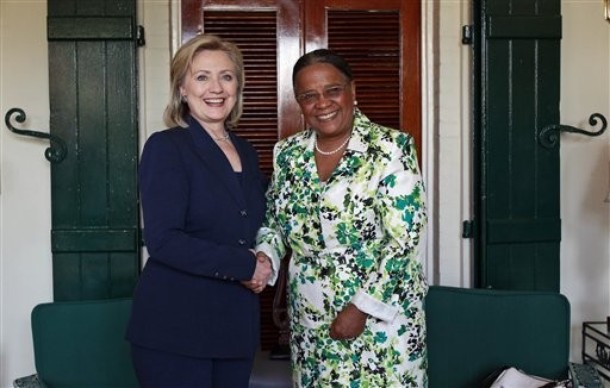
Mirlande Manigat was the presidential candidate for the Rally of Progressive National Democrats (RDNP) centre-right party. On October 18, 2010, Dr. Manigat also received the endorsement of the Collectif pour le Renouveau Haïtien (COREH).
Her
platform for the presidency includes a focus on education of the youth
of Haiti, and lifting the long-standing and restrictive constitutional
conditions on dual nationality. She specifically promotes opening
government positions for members of the Haitian diaspora.
Manigat also aims for a more independent Haitian state, one less
reliant upon and subject to foreign governments and NGOs. - Wikipedia
The winner was Michel Martelly with no government credentials or experience.

Martelly's journey to the presidency is documented in the film
Sweet Micky for President which is currently available on demand at Showtime. Given my love for and attachment to Haiti, of course I watched.
I
was unprepared, however, for the parallels that emerged between the
2010 Haitian election and the election season we are experiencing. Our
democracy is so much older. Theirs is like a toddler who runs before he
can get walking under control. I never thought our presidential
campaign events could resemble some of the anger and violence that erupt
during third world elections. But then we have to look to the
candidates and the way they run their campaigns. That is where the
similarities lie.
Older and wiser now, I know that yes, Americans
absolutely will elect a celebrity for reasons perhaps very similar to
those for which Haitians elected "Micky" Martelly. I have learned never
to underestimate what Americans will do in the privacy of the voting
booth, never to trust what they might do with their precious ballots,
never to assume.
Martelly fell into disfavor with the populace. It
was probably inevitable. In January 2015 protesters in the streets
angrily demanded his resignation. He resigned office in February of
this year. We will never know what Mirlande Manigat might have done as
the first woman president of Haiti. I doubt that she will ever make
another run. I do know that we have a chance make our decisions based
not on celebrity and visibility but rather on issues, plans, and
policies. Strutting and fretting your hour on the stage leads to being
heard no more, after all, and ending up just a tale told by an idiot
signifying nothing.


